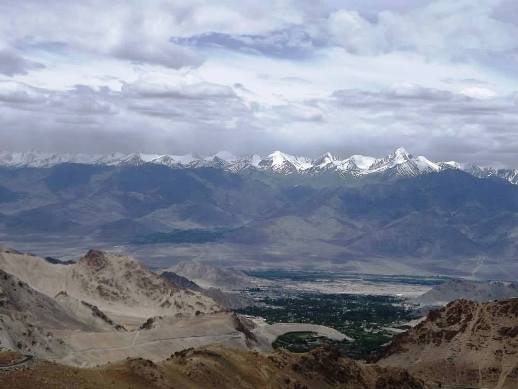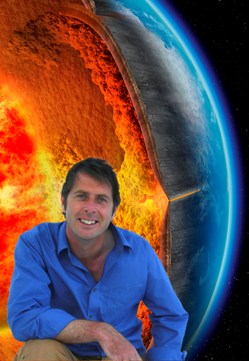Himalaya - Sustainable Resource Development
Nic Bilham (Director of Policy and Communications) on a conference organised jointly by the Society and the Unviersity of Jammu, Leh.
 Earth scientists from the Himalayan nations and around the world gathered on 24-26 June in Leh (Ladakh, India) to discuss with social scientists, development practitioners, policy-makers and community representatives how to develop the rich and varied resources of the Himalaya sustainably, so as to benefit local communities and nations to which they belong.
Earth scientists from the Himalayan nations and around the world gathered on 24-26 June in Leh (Ladakh, India) to discuss with social scientists, development practitioners, policy-makers and community representatives how to develop the rich and varied resources of the Himalaya sustainably, so as to benefit local communities and nations to which they belong.
Ladakh is developing rapidly, and both the Jammu and Kashmir state government and Indian national governments wish it to become an exemplar of sustainable development. Just days before the conference, Narendra Modi said he was considering establishing a new ministry of Himalayan affairs.
Much of the discussion focused on the challenges of balancing conflicting factors – the material needs of local people and those further away (for example, the billion people who rely on Himalayan glaciers for their water); local, regional and national economic growth, and impacts on the environment, human health and wellbeing – exacerbated by rapid population growth and climate change.
Student Programme
A two-day student programme was attended by over 100 children from nearby schools, focusing on topics which affect them directly – the origin and use of natural resources, climate change, the geology of landslides and earthquakes, and disaster risk reduction. Students were asked to design posters on the conference themes, the best of which were displayed at the main conference. A shorter schools programme was delivered at two further schools, at Nyoma and Puga, where many students come from nomadic communities.At the request of local policy-makers, we will produce a briefing document on the policy and planning implications of the conference, as well as basic useful information for local communities written in their own language.
Contested geoscience
On 20 June the Society hosted a one-day meeting on ‘Communicating Contested Geoscience’ writes Flo Bullough.
 The aim was to discuss the issues around communicating the geology underlying some of the key questions that communities across the UK will face as we address future resource needs. The meeting focused on three issues: Shale Gas, Carbon Capture and Storage (CCS) and Radioactive Waste Disposal - all areas where effective communication of relevant geoscience to non-specialists is essential for the public to engage in informed debate and decision-making.Delegates at the lively and well attended meeting included those working in government, natural and social science academics, representatives from industry, and specialists in science communication and public engagement, and geologist and TV presenter Professor Iain Stewart (University of Plymouth - picture).
The aim was to discuss the issues around communicating the geology underlying some of the key questions that communities across the UK will face as we address future resource needs. The meeting focused on three issues: Shale Gas, Carbon Capture and Storage (CCS) and Radioactive Waste Disposal - all areas where effective communication of relevant geoscience to non-specialists is essential for the public to engage in informed debate and decision-making.Delegates at the lively and well attended meeting included those working in government, natural and social science academics, representatives from industry, and specialists in science communication and public engagement, and geologist and TV presenter Professor Iain Stewart (University of Plymouth - picture).
Introductory talks on each topic were followed by panel-led discussion sessions, addressing features unique to each sub-topic as well as broader cross-cutting issues. These included the need to look at energy choices in the round, rather than presenting people with decisions about particular energy sources in isolation – using DECC’s UK 2050 energy calculator (http://2050-calculator-tool.decc.gov.uk) for example, to show the implications and trade-offs associated with these choices.
The meeting also discussed the challenges of communicating about risk, uncertainty and long timescales; the potential disconnect between what scientists may wish to communicate and what stakeholders want to know; and lessons learned from past engagement.